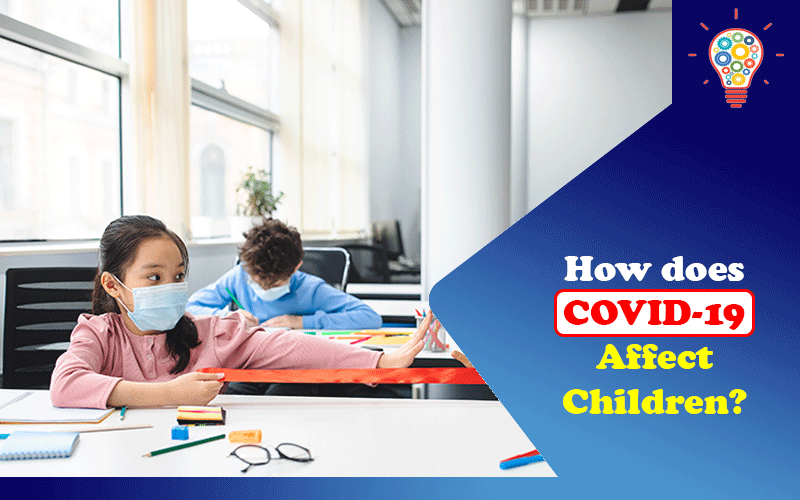Insomnia, tantrums, nightmares, fear … this is how COVID-19 affects children. These are some of the reactions we are seeing in our sons and daughters after two months of confinement caused by the coronavirus pandemic.
In a short time, children have had to adapt to situations for which even adults are not prepared. Explaining why they couldn’t leave the house was already complicated. Now that they can, the challenge is for them to understand under what conditions.
The pandemic caused by the coronavirus has turned our lives upside down. As adults, it is taking real efforts to cope with it, but we are getting ahead badly. We have tools to manage the emotions that all the changes are generating in ourselves. But how can the little ones do it? Today we explain how COVID-19 affects children and we give you some tips to manage the crisis that the disease has installed in our homes a little better.
Table of Contents
Effects of COVID-19 on children
Understanding how COVID-19 affects children will give us the keys to help them manage the emotions that cause such drastic changes in their lives.
The health crisis has hit on three fundamental pillars for the life and full development of children :
Education: the closure of schools exacerbates the digital divide and impoverishes. Learn more on this topic.
Food: schools guaranteed healthy eating for thousands of boys and girls.
Emotional health: taking them away from their routine and exposing them to stressful situations that they cannot manage makes them more vulnerable.
The adventure of the first days of not going to school and being at home was short-lived. The change in their routines and their social relationships, the tension of adults worried about the disease, about the economic and work situation, and about juggling to turn the house into a school and an office at the same time, is taking its toll on the health of the community. childhood. The disease has kept them apart from their worst symptoms, however, stress and anxiety can cause serious problems in their health. This situation is even more complicated in households with low or scarce resources and in single-parent households, even more so in developing countries where poverty is extreme.
Tips for managing the crisis with our children
Throughout its development, childhood is acquiring knowledge, skills, and experiences that help its emotional development. Being subjected to stressful situations affects them more than adults because they have not acquired the necessary skills to manage their emotions. That is why fears, tantrums, insomnia, and nightmares appear, among other forms of expression of stress. In a situation like this, we must be more than ever by their side because that will cushion the effects of COVID-19 on children. As UN Secretary-General Antonio Guterres points out, if we do not protect our children, the effects will be devastating.
To achieve this we offer you some simple tips that you can incorporate into your day-to-day, at home, and when going out.
If we do not protect children from the coronavirus pandemic, the effects will be devastating (Antonio Guterres, UN Secretary-General)
At Home
1. Talk to them normally and safely about what is happening, it is not necessary to hide information from them. Explain things to them in their language but give them all the information they ask for.
2. Structure your days with routines: knowing what you have to do at all times makes you feel more secure.
3. Offer them activities appropriate to their age and get involved in them, that will also help you to clear yourself.
4. It is time to take advantage of that physical contact that in our day-to-day in normal conditions we did not have. They cannot have physical contact with their friends and other family members but with you, they can. Show them all your love with hugs and kisses.
5. Taking a few minutes to relax will do you all good. And if it is before going to sleep, the better.
6. Ask him to write or draw what he thinks, what he feels. That will help you better understand what is happening to him.
7. Diet these days is also important especially since the level of exercise decreases.
8. Exercise in these days of lockdown will help you to maintain your body health. If you can afford you should purchase a treadmill and adjustable dumbbells for your fitness.
On the street
1. Before going out, remember how important it is to wash your hands and keep a safe distance from other people. For this, you can put into practice a routine at home as a game to get used to the distance. A face mask and ladies loungewear is necessary to get out of the home in this situation of Covid-19.
2. If they have to wear a mask, make sure you have practiced at home before so that they do not touch. Preventing them from putting their hands on their face is very difficult so, do not put it on if it is not necessary because it could be harmful.
3. Children have no notion of time or distance. Explain to them what route you are going to do when you leave and what they are going to see; that makes them feel more secure.
4. And above all, do not punish yourself. Don’t try to be super mom or super dad – they need you just the way you are.

